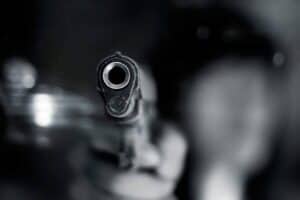National Council Against Smoking deputy director Dr Sharon Nyatsanza makes case for increasing taxes aimed at reducing tobacco consumption.

Illicit trade is high, but not as high as the tobacco industry reports. While an overstatement of the illicit trade of tobacco products may suit the industry’s agenda ahead of the midterm budget, it should not deter strong tax increases aimed at reducing tobacco consumption.
Focus should rather fall on strong law enforcement and securing the tobacco supply chain to reduce the illicit trade problem.
While Batsa (British American Tobacco South Africa) has been headlining with comments that nearly 70% of all cigarettes being consumed in the South African market are from illicit brands, the research unit on the economics of excisable products (Reep) at the University of Cape Town estimates otherwise.
Illicit trade was between 54%- 58% of the total market in 2021, based on a gap analysis where self-reported consumption estimates are compared to legitimate sales.

Since 2010, the illicit cigarette market has increased sharply, accounting for 30%-35% of the total market by 2017.
In 2020, the illicit market was stimulated by the 20-week sales ban, when no cigarettes were legally sold. Reep found no evidence that excise tax increases are linked to an increase in illicit trade. When excise taxes were increasing rapidly, illicit trade was stable (2002-2009).
However, when excise tax increases were relatively modest, illicit trade increased rapidly (2010-2021). As illicit tobacco products are sold at ridiculously low prices, they are more accessible to young people. South Africa, as a state party to the World Health Organisation’s Framework Convention on Tobacco Control, has an obligation to protect vulnerable groups from exposure to tobacco products.
ALSO READ: Tobacco companies ‘show true colours’ in illicit trade spat
Illicit trade undermines public health policy and must be addressed. While we appreciate the efforts by the government so far, we urge enforcement agencies to do more.
The solutions to reduce illicit trade through securing the supply chains have been often reiterated and must now be implemented effectively. The South African government has yet to ratify the Protocol to Eliminate Illicit Trade in Tobacco Products (ITP), which proposes measures to tackle illicit trade.
In its March 2021 report on the 2021 Fiscal Framework And Revenue Proposals, the standing committee on finance made recommendations for government to ratify the ITP. To date, no developments have been reported. SA Revenue Service (Sars) has stepped up efforts in carrying out inspections, as well as search-and-seizure operations on cigarette companies and manufacturers.

The Sars commissioner, Edward Kieswetter, says those who deliberately set out to deprive what is due to the fiscus through fraudulent and other non-compliant activities, will be confronted and dealt with.
Upscaling tax administration at Sars is needed and Sars has earmarked R120 million to modernise its customs. Technologies such as a track-and-trace system and unique identification codes on packages will make it possible to track the intended destination and source or the manufacturer of the products.
Sars must also ensure that the tobacco industry does not interfere with solutions.
– Nyatsanza is deputy director of the National Council Against Smoking
READ NEXT: Lockdown bans opened the door to illicit trade and nobody is closing it fast enough
Support Local Journalism
Add The Citizen as a Preferred Source on Google and follow us on Google News to see more of our trusted reporting in Google News and Top Stories.






